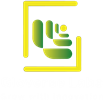Revolutionizing Agriculture with Agritech Farm Management

The agriculture sector is undergoing a transformative revolution, driven by technological advancements and innovative solutions. Agritech farm management is at the forefront of this change, promising to enhance productivity, sustainability, and efficiency in farming practices. This revolution is characterized by smart farming, climate controllers, energy-saving techniques, and sustainable agricultural practices. Let’s delve into how these elements are reshaping agriculture and explore some groundbreaking technologies like AeroFarm and inside farming.
The Advent of Smart Farming
Smart farming represents the integration of advanced technologies into agricultural practices to optimize crop production. It involves the use of sensors, IoT devices, and data analytics to monitor and manage various farming operations. This technology empowers farmers with real-time data on soil health, moisture levels, and crop conditions, enabling them to make informed decisions.
One of the significant benefits of smart farming is its ability to enhance precision agriculture. By using GPS and remote sensing technologies, farmers can apply fertilizers and pesticides more accurately, reducing waste and environmental impact. Moreover, smart farming solutions can predict pest infestations and weather patterns, helping farmers mitigate risks and increase yields.
Climate Controllers: Precision in Farming
Climate controllers play a crucial role in modern agriculture by maintaining optimal growing conditions within greenhouses and indoor farms. These systems regulate temperature, humidity, light, and CO2 levels to create a perfect environment for plant growth. By automating climate control, farmers can ensure consistent crop quality and higher yields.
The Smart Climate Control System stands out as an intuitive, internet-controlled solution designed for precision plant growth. At its core is cutting-edge technology that offers automation and real-time insights tailored for diverse indoor environments. Whether you’re into soil or hydroponic farming, this system streamlines operations and boosts yield. It’s not just technology; it’s a promise of convenience and efficiency, ushering in a new era for growers.
Energy Saving in Agriculture
Energy consumption is a significant concern in traditional farming, particularly in areas like irrigation and greenhouse management. However, agritech innovations are paving the way for energy-saving solutions that reduce costs and environmental impact. For instance, the use of LED lighting in greenhouses consumes less power compared to traditional lighting systems while providing the necessary light spectrum for plant growth.
Solar-powered irrigation systems are another example of energy-saving innovations. These systems harness solar energy to pump water, reducing reliance on fossil fuels and lowering greenhouse gas emissions. Additionally, integrating energy-efficient climate controllers in greenhouses ensures optimal conditions with minimal energy use.
Agriculture and Sustainability
Sustainability is a core principle in modern agriculture, driven by the need to feed a growing global population while preserving natural resources. Agritech solutions promote sustainable farming practices by optimizing resource use and minimizing waste. Precision agriculture, enabled by smart farming technologies, ensures that water, fertilizers, and pesticides are used efficiently, reducing environmental impact.
Furthermore, sustainable agriculture practices such as crop rotation, cover cropping, and organic farming are enhanced by agritech tools. These practices improve soil health, increase biodiversity, and reduce dependence on chemical inputs. The integration of sustainable practices with advanced technologies ensures long-term agricultural productivity and environmental conservation.
AeroFarm: A Glimpse into the Future
AeroFarm is an exemplary model of how agritech can revolutionize agriculture. This innovative approach to farming involves growing crops in vertically stacked layers using aeroponics, a method where plants grow in a mist environment without soil. AeroFarm systems are designed to maximize space and resource efficiency, making them ideal for urban and indoor farming.
One of the key advantages of AeroFarm is its ability to produce fresh, nutritious food year-round, regardless of external weather conditions. The controlled environment of AeroFarm reduces the need for pesticides and herbicides, ensuring clean and safe produce. Moreover, the system uses up to 95% less water compared to traditional farming, making it a sustainable solution for water-scarce regions.
Inside Farming: The New Frontier
Inside farming, also known as indoor farming, is gaining traction as a viable solution to the challenges of conventional agriculture. By growing crops in controlled indoor environments, inside farming minimizes the impact of external factors such as climate change and pests. This method utilizes technologies like hydroponics, aeroponics, and aquaponics to cultivate plants in nutrient-rich solutions or mist environments.
The benefits of inside farming are manifold. It allows for year-round production, independent of seasonal changes, ensuring a steady supply of fresh produce. Additionally, inside farming systems are highly efficient, using significantly less water and land compared to traditional farming methods. The controlled environment also reduces the need for chemical inputs, resulting in healthier and more sustainable crops.
The Role of Smart Climate Control Systems
A critical component of inside farming and greenhouses is the Smart Climate Control System. This intuitive, internet-controlled solution is designed to provide precision plant growth by regulating key environmental parameters. The Smart Climate Control System offers automation and real-time insights tailored for diverse indoor environments, whether soil-based or hydroponic.
This system streamlines operations and boosts yield by ensuring optimal growing conditions. It adjusts temperature, humidity, light, and CO2 levels automatically, based on the specific needs of the crops. This not only enhances productivity but also reduces labor and energy costs. The Smart Climate Control System represents a significant leap forward in agritech, offering convenience and efficiency for modern growers.
Conclusion
Agritech farm management is revolutionizing agriculture, bringing forth innovations that enhance productivity, sustainability, and efficiency. Smart farming technologies, climate controllers, energy-saving solutions, and sustainable practices are transforming traditional farming methods. Innovations like AeroFarm and inside farming are paving the way for a future where agriculture is resilient, resource-efficient, and capable of feeding a growing global population.
The integration of advanced technologies such as the Smart Climate Control System ensures precision and optimization in farming operations. As we move forward, the continued adoption of agritech solutions will be essential in addressing the challenges of modern agriculture and ensuring a sustainable and prosperous future for all.
